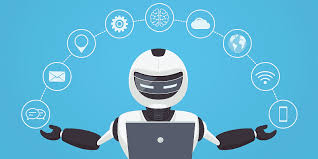Source: yourstory.com
Digital marketing relies on leveraging insights from the copious amounts of data that gets created every time a customer interacts with a digital asset. Algorithms optimise various factors and data points that influence digital marketing success.
In 2020, we anticipate a significant uptick in the mainstreaming of AI and machine learning use cases in digital marketing across several areas.
Search will get very smart
In the past year, online search has had several AI and machine learning developments. Google is leading the pack with exciting applications in information retrieval. For example, Google’s BERT technology can process a word in the context of all the other terms in a sentence, rather than one-by-one in order. BERT also enables anyone to train their own state-of-the-art question answering system.
AI-driven personalisation of messaging
Several adtech companies have been focussing on using AI and machine learning to find the right audience to write better ads than humans, and to increase conversion rates and engagement with the target audience. There are also several AI-led developments in the area of creating dynamic ads and landing pages to personalise marketing messages on the fly.
AI has an application in content creation in terms of determining the logic of personalisation as also curating content specific to an individual, using techniques such as natural language generation (NLG).
Use of machine learning in campaign operations
Platforms such as Google and Facebook have been at the forefront of AI/ML applications in marketing. Starting from smart bidding and smart campaigns to auto-generated ads, Google is making it easy for advertisers.
Smart bidding options such as TROAS, TCPA, and others use advanced machine learning algorithms to train on data at a vast scale to make accurate predictions about how different bid amounts might impact conversion or conversion value and assist advertisers in optimising without getting into too many details.
Google factors in a wide range of contextual signals (through search data) to predict user behaviour and to influence auction time bidding as per the goal set by advertisers. Facebook has also incorporated machine learning across campaign planning and execution, as also in ad placements and ad delivery.
Similarly, on the organic search side, machine learning-based product ALPS reverse engineers Google’s ranking algorithm, and is able to accurately quantify ranking drivers, provide precise recommendations for changes, and predicts the impact of SEO actions before they are implemented.
Similar technology to drive improved ad copy testing in digital marketing exists. These help in evaluating ad copies and landing pages on various parameters like relevancy, use of action promoters/inhibitors, urgency inducers, page layout, load times, etc., to gauge the impact on ad relevance, expected CTR, and landing page experience.
Future trends
Many retailers are also testing AI and VR/AR technologies together to make the user experience personalised to an individual.
Other areas of impact include voice search. We will increasingly see ads about things which we just said or talked about, but haven’t searched for yet. Similarly, image search is also being used by many brands for their consumers to match patterns and identify products using image search.
